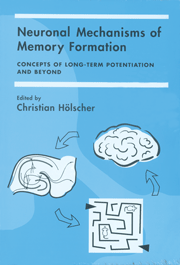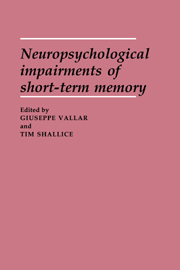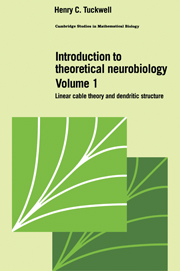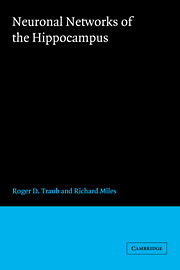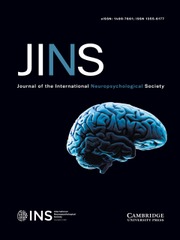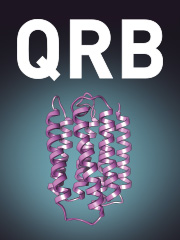Neuronal Mechanisms of Memory Formation
Long-term potentiation (LTP) is the most dominant model for neuronal changes that might encode memory. LTP is an elegant concept that meets many criteria set up by theoreticians long before the model's discovery, and also fits the anatomical data of learning-dependent synapse changes. Since the discovery of LTP, the question has remained regarding how closely LTP produced in vitro by artificial stimulation of neurons actually models putative learning-induced synaptic changes. A number of recent investigations have tried to correlate synaptic changes observed after learning with changes produced by artificial stimulation of neurons. Some of these studies have failed to find a correlation between the two forms of synaptic plasticity, signalling a need to discuss the concept of LTP and possible alternate processes that could fit the available data. This book presents a selection of ideas that range from supporters of the LTP theory to different novel concepts that have yet to be investigated. This volume will prepare the ground for research in this area in the new millennium.
- Discusses topics that are currently popular areas of research in neuroscience such as Long Term Potentiation (LTP), synaptic plasticity, and memory formation
- There is no up-to-date book covering this topic
- Includes contributions from leading researchers in the field from all over the world
Reviews & endorsements
"...this volume can be recommended for those who wish to succinctly survey the current state of science... This book offers a timely collection of well-written articles..." Timothy J. Teyler, Quarterly Review of Biology
Product details
November 2000Hardback
9780521770675
528 pages
264 × 184 × 34 mm
1.05kg
66 b/w illus. 6 tables
Temporarily unavailable - available from TBC
Table of Contents
- General Introduction: Long-term potentiation as a model for learning mechanisms: 'the story so far' Christian Hölscher
- Part I. LTP In Vitro and in Vivo: How Can We Fine-Tune the Current Models for Memory Formation?:
- 1. Persisting with LTP as a memory mechanism: clues from variations in LTP maintenance Wickliffe C. Abraham
- 2. LTP in the amygdala: implications for memory Michael T. Rogan, Marc G. Weisskopf, Yan-You Huang, Eric R. Kandel and Joseph E. LeDoux
- 3. Multiple roles for synaptic plasticity in Pavlovian fear conditioning Stephen Maren
- 4. Plasticity of the hippocampal cellular representation of space Kathryn J. Jeffrey
- Part II. There is More to the Picture than LTP: Theta or Gamma Oscillations in the Brain and the Facilitation of Synaptic Plasticity:
- 5. Synaptic potentiation by natural patterns of activity in the hippocampus: implications for memory formation Fenella Pike, Sturla Molden, Ole Paulsen and Edvard I. Moser
- 6. Plasticity in local neuronal circuits: in-vivo evidence from rat hippocampus and amygdala Mouna Maroun, Dan Yaniv and Gal Richter-Levin
- 7. Theta-facilitated induction of LTP: a better model for memory formation? Christian Hölscher
- 8. Neuronal processing of information in the neocortex and the role of gamma-oscillations in perception and memory formation Matthias H. J. Munk
- Part III. Making Models from Empirical Data of Synaptic Plasticity:
- 9. Towards a physiological explanation of behavioural data on human memory: the role of theta-gamma oscillations and NMDAR-dependent LTP John Lisman, Ole Jensen and Michael Kahana
- 10. Neuronal networks, synaptic plasticity, and memory systems in primates Edmund T. Rolls
- 11. Revisiting the LTP orthodoxy: plasticity versus pathology Jill C. McEachern and Christopher A. Shaw
- 12. Long-term potentiation and associative learning: can the mechanism subserve the process? Louis D. Matzel and Tracey J. Shors
- Part IV. Setting the Stage for Memory Formation: Stress, Arousal and Attention:
- 13. Strategies for studying the role of LTP in spatial learning: what do we know? Where should we go? Donald P. Cain
- 14. What studies in old rats tell us about the role of LTP in learning Gregory M. Rose and David M. Diamond
- 15. Implications of the neuropsychology of anxiety for the functional role of LTP in the hippocampus Neill McNaughton
- 16. Differential effects of stress on hippocampal and amygdaloid LTP: insight into the neurobiology of traumatic memories David M. Diamond, Collin R. Park, Michael J. Puls and Gregory M. Rose
- Part V. Transgenic Mice as Tools to Unravel the Mechanisms of Memory Formation:
- 17. In vivo recording of single cells in behaving transgenic mice Yoon H. Cho and Howard B. Eichenbaum
- 18. Understanding synaptic plasticity and learning through genetically modified animals Paul F. Chapman
- 19. What can gene activation tell us about synaptic plasticity and the mechanisms underlying the encoding of the memory trace Sabrina Davis and Serge Laroche
- Conclusions and future targets Christian Hölscher, Gal Richter-Levin and Timothy V. P. Bliss.

